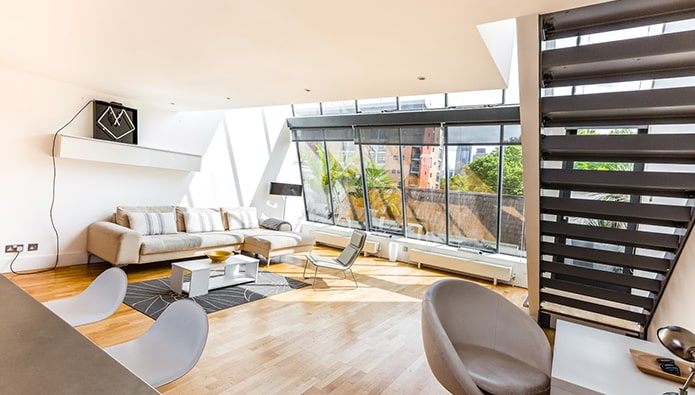GuestReady now has over 2,500 properties in its portfolio, with this figure more than quadrupling in under 12 months.
It says it has booked 400,000 nights’ accommodation and managed properties for 2,600 hosts worldwide since it was founded in 2016.
Alexander Limpert, chief executive and co-founder of GuestReady, said it was his first-hand experience of being an Airbnb host that inspired him to set up a service that would simplify hosting for time-stretched hosts.
“I started to look at how software can reduce spending time listing a property on multiple booking sites, managing check-ins and check-outs of guests, cleaning and maintaining a property, while upholding a five-star quality service for our hosts and guests,” he explained.
The property management system centralises and automates processes including the dispatching of service providers, payment schedules and guest communications, and debuted in six cities when it launched in 2016 – namely London, Paris, Amsterdam, Singapore, Kuala Lumpur and Hong Kong.
“I must admit, it was an ambitious plan and would not have been possible without a great team of experienced entrepreneurs behind me,” 33-year old Limpert said.
“We knew that if we wanted to make GuestReady a success, we needed to think big. In the beginning, it was just me and my girlfriend running and setting up operations for GuestReady London. We put up all the listings, cleaned apartments, prepared the beds for guests, dealt with property maintenance, responded to guests’ queries and welcomed them at the property as they arrived.”
In 2016, after living and working for a year in Asia, Limpert moved back to London to set up GuestReady and appointed country managers in Paris, Amsterdam, Singapore, Kuala Lumpur and Hong Kong.

“By deliberately opening operations in a few cities we were able to quickly test, learn, adapt and scale our market strategy,” he said.
“Not all our markets got traction, though. Within a few months after our launch, we decided to exit Amsterdam and Singapore. We saw that the demand for our services in these cities was limited, so decided to focus our resources elsewhere.”
In June last year, GuestReady closed a $6million Series A funding round co-led by Impulse VC, a Russian fund backed by Chelsea FC owner Roman Abramovich, and Dubai based VentureSouq.
In the last 12 months, GuestReady says it has enjoyed a rapid period of growth with an increase in demand from property investors, multi-family homeowners and senior hosts.
Senior hosts are using short-term lettings as an extra source of income to complement their pension, pay bills and travel.
In recent years, short-term lets have become a popular way for landlords to fill time between tenants as research indicates the average time to occupy an empty property has risen in most regions of the UK.
“It’s essential for landlords to maximise the income from their properties to keep yields healthy,” Steffan Maagefelt, GuestReady’s UK managing director, said.
“Short-term lettings are helping property owners maintain a steady income while they wait for new longer-term tenants to move in.”
In the past 11 months, GuestReady’s team has grown globally from 70 to 150, while the company has also been on an acquisition drive with the purchase of three short-term and holiday letting firms: Oporto City Flats in Portugal, We Stay in Paris and European market leader BnbLord.
As the sharing economy has boomed in the last decade, led by the likes of Airbnb, many firms such as GuestReady have benefitted significantly.
But the short-let market has not been free from censure or controversy, with some saying it’s simply too unregulated and in many locations to the detriment of local housing markets and residents.
A number of cities across the world – from London and Barcelona, to Paris, Berlin, New York and Amsterdam – have taken action to offset the downsides of the short-let boom. In June this year ten European cities joined together to request more help from the EU in their fight against Airbnb and other short-let holiday rental websites, while in May 2019 the Mayor of London, Sadiq Khan, was urged to ban Tube adverts encouraging landlords in the capital to break short-let laws.
This eventually led to Hostmaker – another major home-sharing management firm in the UK – pulling their advertising campaign from the TfL network after mounting criticism.
We also ran a story in late September, where a property management firm warned landlords to be cautious about Airbnb.

Most recently, it was revealed that the Scottish Government is ready to support a clampdown on short-term flat lets in Edinburgh after a consultation showed the true scale of the Airbnb problem in terms of regulation, enforcement, safety and the impact on the local housing market. Many have called for a licensing regime (similar to what is used in the private rented sector) and more adequate levels of enforcement to improve safety and mitigate the effect on housing supply.
The consultation showed that Edinburgh as a whole is home to 31.38% of all of Scotland’s Airbnbs, equivalent to 9,994 short-term lets in total. One in six properties in the City Centre ward are now Airbnbs, with over 2,710 of Edinburgh’s nearly 17,000-strong housing stock listed on the short-term letting website.
On the other hand, the difficulties cities face in effectively policing the short-lets sector whilst not diminishing its value to local economies was laid bare this week when it was revealed that Airbnb accommodation guests are on course to spend an estimated £223 million at restaurants and cafes around Scotland this year, a 29% increase on 2018.
At a city level, Airbnb guests are expected to spend £95 million in Edinburgh during 2019, an increase from £75 million in 2018, with guests spending nearly one third (31%) of their total trip budget on food when visiting Scotland.
Worldwide, Airbnb said its ‘guest community’ spent an estimated £19 billion at restaurants and cafes in 2018, based on data for 46 countries and regions.
If spending levels remain the same, Airbnb says it expects guests will spend more than £24 billion at restaurants and cafes in these same locations in 2019.
Airbnb, which is the biggest but far from the only short-let website on offer, says it has around 223,200 active listings in the UK, generating average earnings for hosts of £3,100 per year. It’s also loved by tourists, holidaymakers, businesspeople and city-breakers alike as a more flexible (and very often much cheaper) option than hotels or B&Bs.
This has driven its popularity and the subsequent growth of management firms such as GuestReady, Airsorted and Hostmaker, but it will continue to face calls for much greater regulation and scrutiny as it – and the short-lets sector more widely – continues its seemingly unstoppable growth.












.png)








Join the conversation
Be the first to comment (please use the comment box below)
Please login to comment